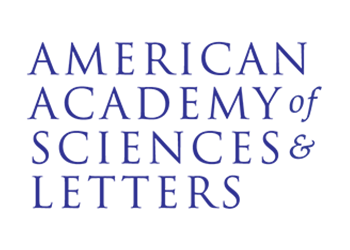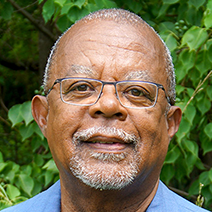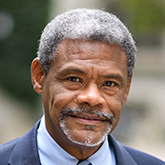 The Barry Prize for Distinguished Intellectual Achievement is the premier recognition of excellence in scholarship by the American Academy of Sciences and Letters. This prestigious annual prize, open to scholars across diverse fields and disciplines, honors those whose work has made outstanding contributions to humanity’s knowledge, appreciation, and cultivation of the good, the true, and the beautiful.
The Barry Prize for Distinguished Intellectual Achievement is the premier recognition of excellence in scholarship by the American Academy of Sciences and Letters. This prestigious annual prize, open to scholars across diverse fields and disciplines, honors those whose work has made outstanding contributions to humanity’s knowledge, appreciation, and cultivation of the good, the true, and the beautiful.
Ten scholars were presented with the Barry Prize in 2024. Two of the 10 recipients are African Americans.
 Henry Louis Gates, Jr. is the Alphonse Fletcher University Professor and director of the Hutchins Center for African & African American Research at Harvard University. An Emmy- and Peabody-Award-winning filmmaker, literary scholar, journalist, cultural critic, and institution builder, Professor Gates has published numerous books and produced and hosted an array of documentary films. He was a member of the first class of “genius grants” awarded by the MacArthur Foundation in 1981, and in 1998 he became the first African American scholar to be awarded the National Humanities Medal.
Henry Louis Gates, Jr. is the Alphonse Fletcher University Professor and director of the Hutchins Center for African & African American Research at Harvard University. An Emmy- and Peabody-Award-winning filmmaker, literary scholar, journalist, cultural critic, and institution builder, Professor Gates has published numerous books and produced and hosted an array of documentary films. He was a member of the first class of “genius grants” awarded by the MacArthur Foundation in 1981, and in 1998 he became the first African American scholar to be awarded the National Humanities Medal.
The citation for Professor Gates’ Barry Award reads: “With tenacity, sensitivity, and verve, Henry Louis Gates, Jr., has transformed literary and social studies by cultivating our appreciation of African and African-American literature. His tireless efforts in unearthing and explicating previously neglected contributions has been matched by his uncompromising insistence that we engage great works drawn from diverse traditions of thought and practice on their own terms, as part of our shared human patrimony. The Academy honors Dr. Gates’ distinguished contributions to humanity’s growing capacity to recognize, and be uplifted by, diverse forms of literary excellence.”
A native of West Virginia, Dr. Gates is a summa cum laude graduate of Yale University. He earned a Ph.D. at the University of Cambridge in England.

The citation for Professor Jordan’s Barry Award reads: “Bridging the social, economic, religious, and political dimensions of life, William Chester Jordan has unlocked the mysteries of medieval Europe for contemporary readers. His scholarship has deepened our understanding of such critical historical events and developments as the Great Famine, the Crusades, the treatment of Jewish populations, the contributions of women to premodern economies, and the legal systems of medieval monarchies. The Academy honors Dr. Jordan’s distinguished contribution to humanity’s capacity to make sense of its own past, that its present and future may be enriched by a larger understanding of its story.”
Dr. Jordan is a graduate of Ripon College in Wisconsin, where he majored in history, mathematics, and Russian studies. He holds a Ph.D. in history from Princeton University.

